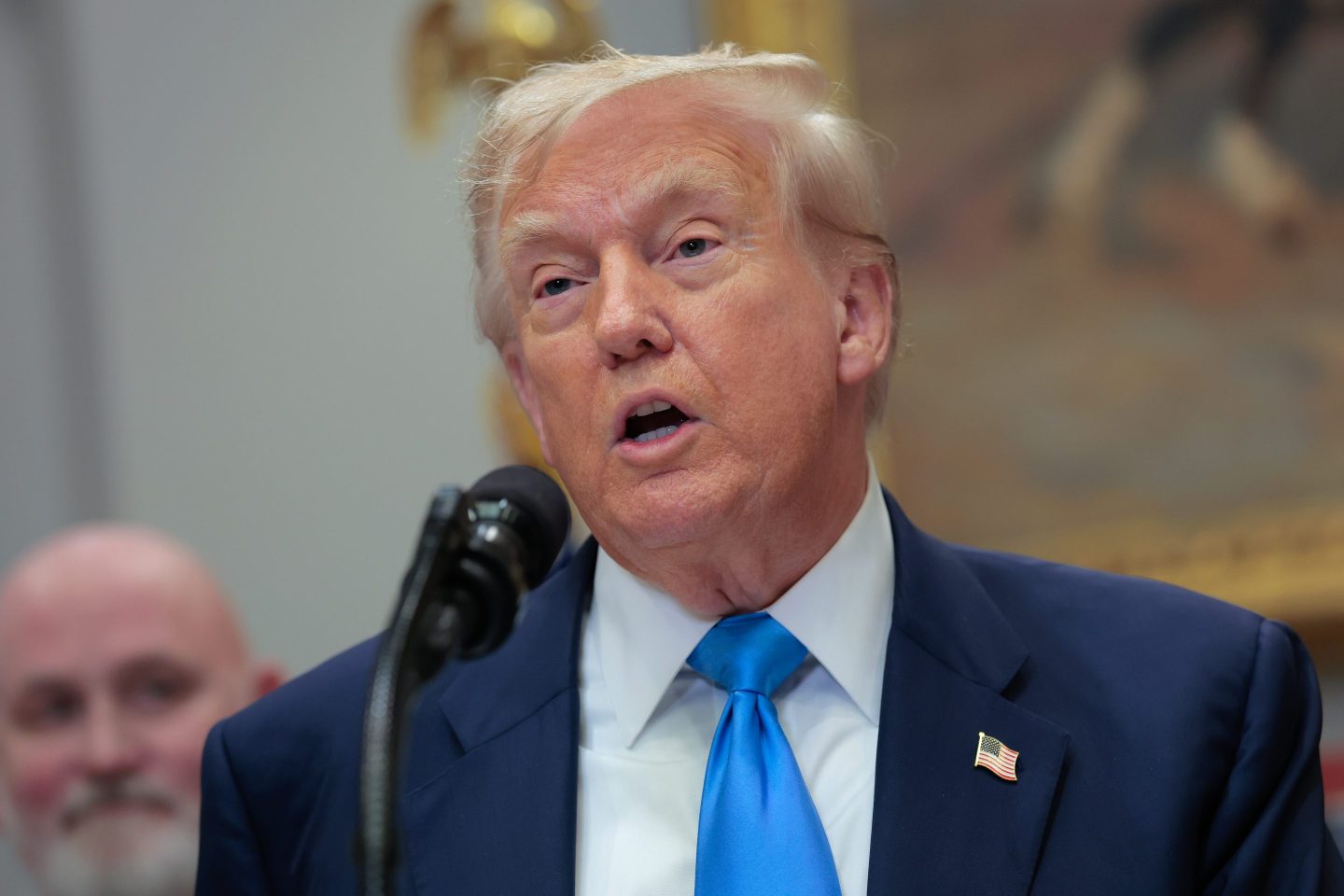President Donald Trump sent a jolt through the tech industry on Thursday, demanding the immediate resignation of Intel’s CEO, Lip-Bu Tan, and branding him as “highly conflicted.” The call, issued via Trump’s Truth Social platform, follows a request earlier in the week from Republican Sen. Tom Cotton to the Intel chairman, demanding answers about Tan’s ties to China.
“The CEO of Intel is highly CONFLICTED and must resign, immediately. There is no other solution to this problem. Thank you for your attention to this problem!” Trump wrote Thursday morning.
Tan only took the helm at Intel in March 2025, and his appointment was initially welcomed by investors, with Intel’s stock rising as much as 15% following his start. Tan took over from Pat Gelsinger, long considered a star CEO in the chips and semiconductor space, who was reportedly forced out by the board, which had grown frustrated with Intel losing market share to Nvidia.
By late July, Tan sent a memo to employees informing them of significant ongoing layoffs and other cost-cutting measures, and shares were trading below their springtime level by that point. On Thursday, shares fell as much as 3% in premarket trading after Trump’s post.
Why Trump thinks Tan could be ‘conflicted’
The conflict centers on Tan’s financial and professional ties to Chinese companies, particularly those with links to China’s military and technology sector. According to a Reuters investigation in April, Tan—either directly or via his venture funds—has invested at least $200 million in at least 20 Chinese advanced manufacturing and semiconductor firms between 2012 and 2024. The probe identified several companies with links to the Chinese People’s Liberation Army.
These revelations gained new urgency after Sen. Cotton sent an open letter to Intel’s board, also reported by Reuters, questioning Tan’s allegiances and whether the company could be trusted with nearly $8 billion in federal subsidies under the CHIPS and Science Act—money designed to shore up domestic chip fabrication critical to U.S. security, finalized during the Biden administration.
Cotton’s letter demanded to know whether Intel had required Tan to divest any interests in Chinese technology companies or firms tied to China’s Communist Party and its armed forces. The senator referenced not just Tan’s investments, but also his leadership of Cadence Design Systems, a major chip design company. Less than two weeks before Cotton’s letter was issued, in late July, Cadence admitted to violating export rules by providing technology to a Chinese military university and agreed to pay a $140 million fine as a result.
In a statement provided to Fortune, Intel said the company, the board and Tan are “deeply committed to advancing U.S. national and economic security interests and are making significant investments aligned with the President’s America First agenda.” Noting that Intel has been manufacturing in America for 56 years, the company said it is continuing to invest billions of dollars in domestic semiconductor R&D and manufacturing, including its new chip fabricating plant in Arizona, which “will run the most advanced manufacturing process technology in the country.” Intel claimed it is the only company investing in leading logic process node development in the U.S. “We look forward to our continued engagement with the Administration.”
Broader political context
Trump’s demand comes just one day after he announced plans to impose a 100% tariff on imported computer chips, part of his broader economic campaign against reliance on foreign—especially Chinese—technology, with America’s lead in chips a key tension point. Trump’s comments are also stoking new leadership drama for Intel, which has already cycled through several CEOs and directors in recent years amid fierce competition from Nvidia, AMD, and Samsung.
The dustup threatens to further destabilize Intel at a critical moment. The company, which once dominated the global chip market, has been battling to regain its competitive edge in artificial intelligence processors and advanced semiconductor manufacturing. Just days before Trump’s remarks, Intel said it was separating its networking division to streamline its operations under Tan’s leadership.
Intel has pledged $100 billion toward U.S. chip manufacturing and packaging, with major projects in Arizona, Ohio, Oregon, and New Mexico. The company received almost $8 billion in direct CHIPS Act funding for these expansions. Companies including Micron Technology, Samsung, and Apple have also pledged large-scale investments in American manufacturing.
Several former board members of Intel criticized the company’s performance in a commentary for Fortune earlier this week, arguing that “U.S. advanced semiconductor manufacturing has been withering for some time.” The coauthors include Charlene Barshefsky, a former U.S. trade representative, Reed Hundt, a former chair of the Federal Communications Commission, James Plummer, a former dean of engineering at Stanford, and David Yoffie, a professor at Harvard Business School. “The once-leading Intel appears to be dropping out of the race. Missed deadlines, poor execution, and a misguided strategy to retain manufacturing within Intel while also serving as a foundry for its fabless chip competitors resulted in a dearth of customers,” they wrote.
[This story has been updated with a statement from Intel, provided to Fortune.]
For this story, Fortune used generative AI to help with an initial draft. An editor verified the accuracy of the information before publishing.













